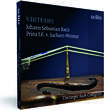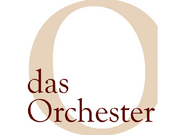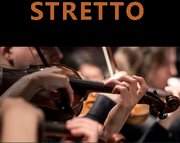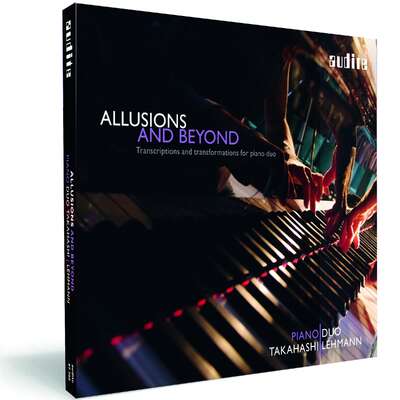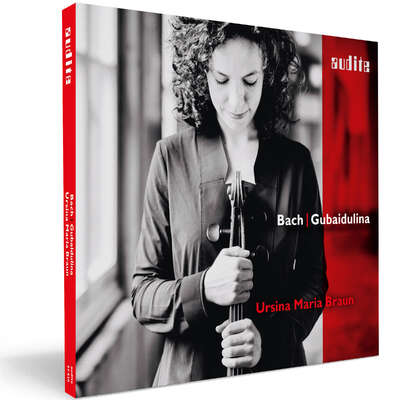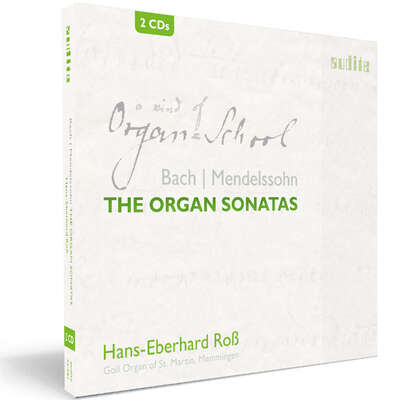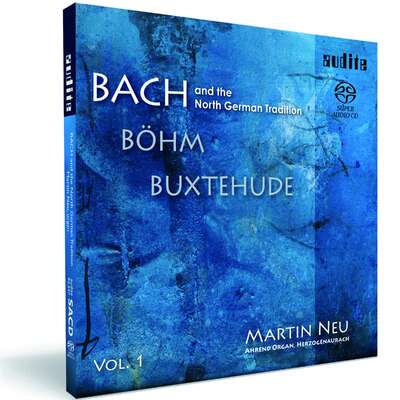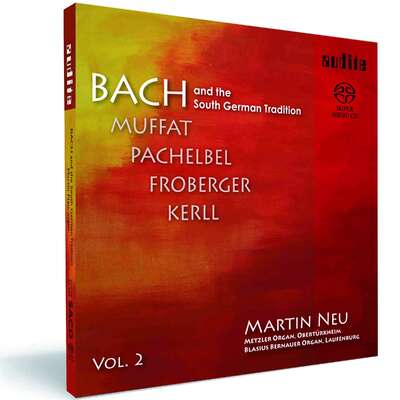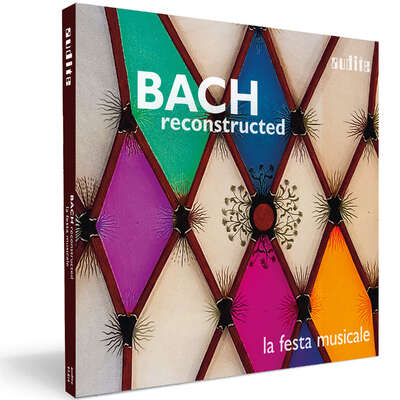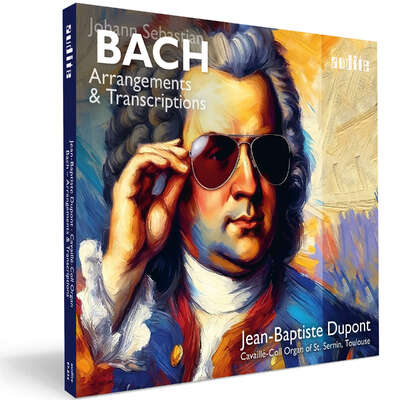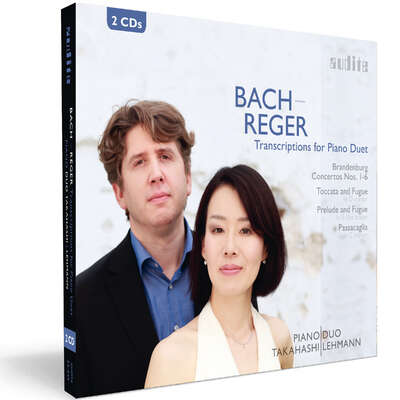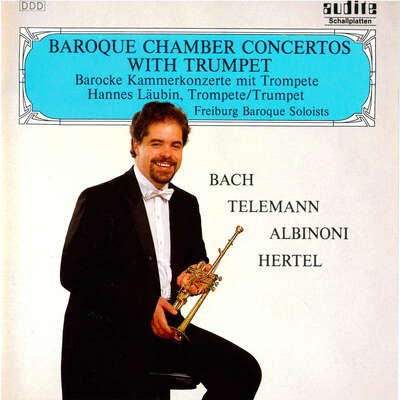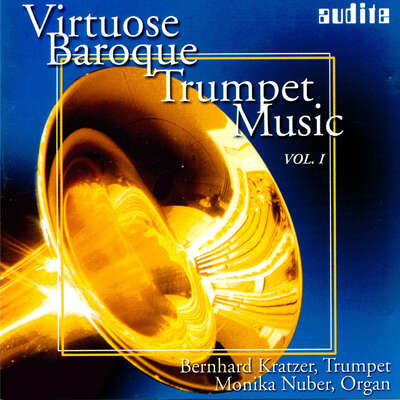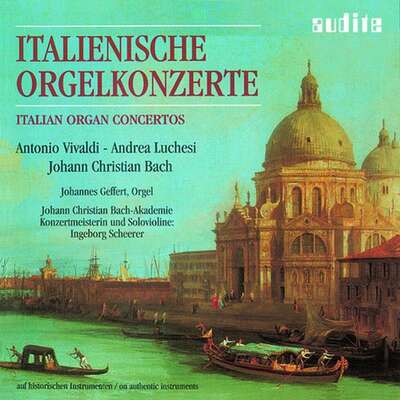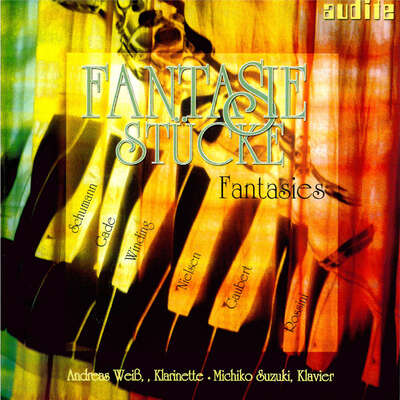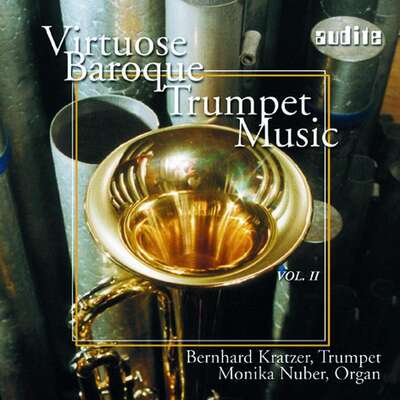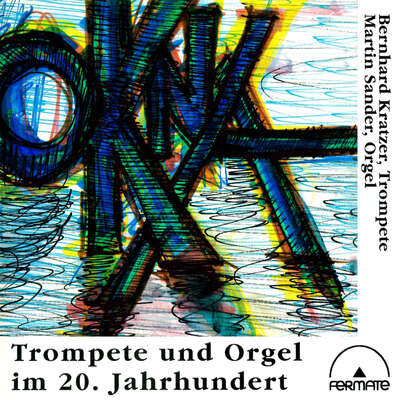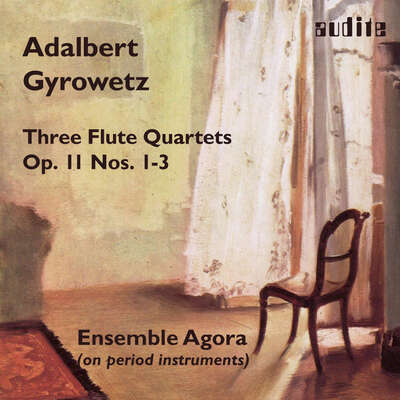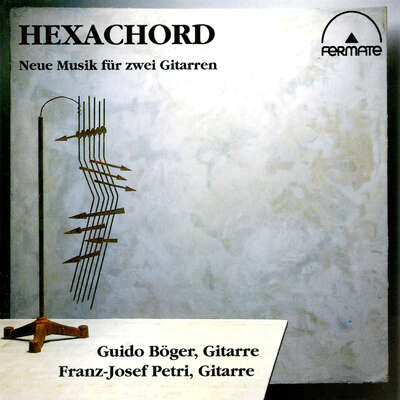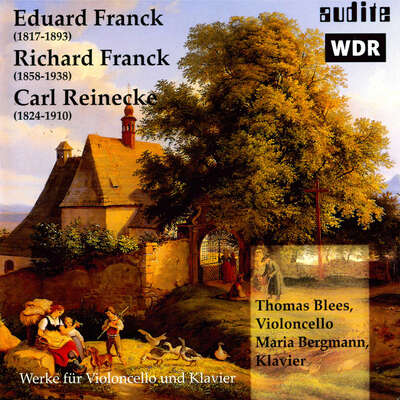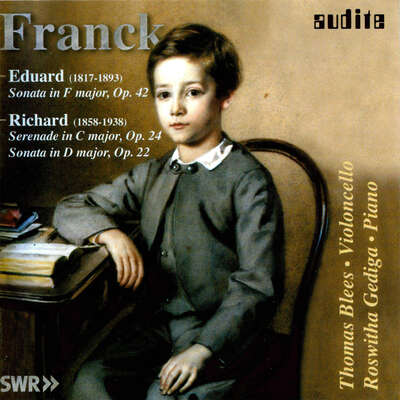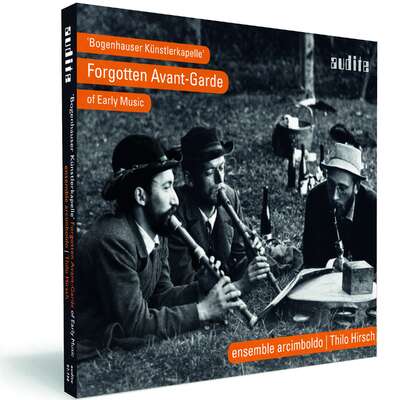
Auto-Rip
Die Fortsetzung der gefeierten Aufnahme-Reihe mit dem Thüringer Bach Collegium liefert bemerkenswerte Einblicke in Bachs Adaption des italienischen Concerto-Stils: Die Konzerte für ein bis drei Solo-Instrumente des jungen Bach sind funkensprühende Auseinandersetzungen um das beste musikalische Argument – musikalische Debattenkultur auf höchstem Niveau. Dem Sog dieses packenden Wettstreits der Virtuosen kann sich niemand entziehen.mehr
Thüringer Bach Collegium
"Gernot Süßmuth [...] und sein Kollege David Castro-Balbi [...] gestalten ihre Partien überaus klangschön und vor allem sehr beredt. [...] ein Konzertieren der erlesensten und betörendsten Art. [...] das Thüringer Bach-Collegium begeistert durch die Frische und Spritzigkeit seines Vortrags, aber eben immer auch durch die geistige Wachheit und Überlegenheit der Gestaltung." (Das Orchester)
Details
| Virtuosi | |
| Artikelnummer: | 97.790 |
|---|---|
| EAN-Code: | 4022143977908 |
| Preisgruppe: | BCA |
| Veröffentlichungsdatum: | 6. August 2021 |
| Spielzeit: | 66 min. |
Zusatzmaterial
Informationen
Musikalische Debattenkultur vom Feinsten - Bachs Adaption des italienischen Concerto-Stils
Es ist eine folgenreiche Begegnung: Um das Jahr 1714 fällt dem Weimarer Hoforganisten Johann Sebastian Bach das druckfrische Opus 3 L'Estro armonico von Antonio Vivaldi in die Hände, und bald ist für ihn musikalisch nichts mehr wie zuvor. Mit Feuereifer eignet Bach sich den modernen Concerto-Stil des roten Priesters aus Venedig an. Und getreu der Bedeutung des Wortes "concertare", das im Italienischen so viel wie "sich verbinden", im Lateinischen jedoch "streiten" oder "kämpfen" heißt, tritt Bach alsbald in einen Wettstreit zunächst mit seinen italienischen Vorbildern und sodann mit sich selbst:
Anfangs arrangiert er Vivaldis Violinkonzerte für sein (Haupt-)Instrument, die Orgel. Anschließend aber implementiert er die Prinzipien Vivaldis in seinen eigenen instrumentalen Concerto-Stil. Das Ergebnis sind seine unvergänglichen Köthener Konzerte für ein bis drei Solo-Instrumente und Orchester, die das Concerto-Prinzip aus gliedernden Tutti-Ritornellen und dazwischen gesetzten fantasievollen Solo-Episoden mit Bachs einzigartigen Fähigkeiten des polyphonen Denkens verschmelzen - hochvirtuose Werke, in denen sich alle teilnehmenden Instrumente gewissermaßen auf Augenhöhe mal miteinander verbinden, mal miteinander in einen harten Wettstreit treten.
Dies alles ist nachzuhören auf der dritten audite-Aufnahme des Thüringer Bach Collegiums: gut 70 Minuten Wettstreit um die besten musikalischen Argumente, vorgebracht mit einer funkensprühenden Virtuosität, der sich niemand entziehen kann!
Besprechungen
www.musicweb-international.com | Wednesday March 2nd | Johan van Veen | 2. März 2022 | Quelle: http://www.music...
Italy has been the birthplace of many musical developments and genres. One of the latter was the solo concerto, which emerged around 1700 and inMehr lesen
In Germany, Johann Sebastian Bach can be considered one of the first who composed solo concertos in the Italian style. However, it was an aristocrat, Johann Ernst Prince of Saxe-Weimar, who was largely responsible for Bach's becoming acquainted with the Italian concerto. He was the second son of Johann Ernst IX of the Ernestine branch of the Saxon house of Wettin. He was educated at the violin and received keyboard lessons from Johann Gottfried Walther. In February 1711 Johann Ernst left for the Netherlands to further his education. In Amsterdam he heard Jan Jacob de Graaf, organist of the Nieuwe Kerk, who used to play Italian solo concertos in his own adaptations for organ. This made such an impression on the young prince that he started to collect Italian concertos. Many of such works were published by Roger in Amsterdam. After his return to Weimar, Johann Ernst started to compose concertos in that style and asked his teacher Walther and Bach – who from 1708 to 1717 was court organist – to arrange them for organ or harpsichord.
The disc under review here documents Bach's investigations into the Italian style and in particular the form of the concerto. Michael Maul, in his liner-notes, points out that this was part of a common habit at the time, called in Latin imitatio and aemulatio, "i.e. the principle of an initially competitive imitation and finally the attempt to develop further and even surpass the imitation". Copying compositions and then adapting them to one's own instrument was the most suitable way to internalize the features of a style or form. Bach's instruments were the organ and the harpsichord. His concerto adaptations are well-known and available in many recordings. Some of them are included here to complete the picture of Bach's dealing with the concerto form.
One of the adaptations is heard here in an orchestral version. The track-list mentions Johann Ernst as the composer, but Maul is more cautious. The composer of the concerto that Bach adapted for the harpsichord (BWV 983), is not known, and Maul merely writes that "it is perfectly feasible" that Johann Ernst was the composer. His name as composer needs a question mark or the addition "attributed". The attempt to reconstruct it as a concerto for violin, strings and basso continuo is one of the most interesting parts of this disc.
The other concertos are rather well-known. That goes in particular for the Concerto in D minor (BWV 1043) for two violins. It is the only original work included here; the version for two harpsichords (BWV 1062) is a later adaptation for the performances of the Collegium Musicum at Zimmermann's coffee house in Leipzig. Most of the harpsichord concertos are adaptations of pre-existent works written for other instruments, either in Weimar or in Köthen. Attempts have been made to reconstruct the original versions. Some of them are controversial, but there is little doubt that the Concerto in C minor (BWV 1060) was originally conceived for oboe and violin. It is one of Bach's most frequently-performed concertos, and there are many recordings, which mainly differ in the choice of key: either C minor or D minor.
There are also several recordings of reconstructions of the Concerto in C (BWV 1064) for three harpsichords. These are usually scored for three violins, strings and basso continuo, but although the track-list mentions that an "orchestra" is involved here, the violins are accompanied by basso continuo alone. Michael Maul writes: "The small-scale themes and the fact that the three soloists often 'argue' in unison with the violins of the orchestra give rise to two assumptions: on the one hand, as has been realised here, that the concerto could originally have been conceived only for three solo instruments, probably three violins and basso continuo – in that case, Bach would have added the orchestral parts later on – or, on the other hand, that the entire style may well indicate a considerably earlier composition than assumed above". The latter refers to a copy by Johann Friedrich Agricola which dates from between 1738 and 1741. It is the first time I have heard this piece without tutti strings, and I wonder if it has been recorded without them previously. It also seems that this version is not just the same reconstruction performed in other recordings but then without strings. I had the impression to hear a different piece. This is the second reason that this disc may appeal to Bach aficionados, who have all the other items on the programme in their collection.
The performances are technically very good and one won't be bored by the way the Thüringer Bach Collegium is playing. However, I often felt a little uncomfortable while listening to this disc. The version of BWV 1064 played here is very interesting, but I have heard reconstructions which I found more convincing. Moreover, the three violins don't blend that well. The playing of this ensemble has some rough edges and is less polished than that of other comparable ensembles. I am all in favour of strong dynamic accents, but one should not exaggerate, and I often felt that exactly that is the case here. In the slow movement from the Concerto BWV 1043 I sorely missed the nicely swaying rhythm, which is so beautifully realised in my favourite recording by La Petite Bande, with Sigiswald Kuijken and Lucy van Dael as the soloists.
To sum it up, I find this disc interesting rather than musically satisfying and enjoyable.
Diapason | N° 708 - Fevrier 2022 | Jean-Christophe Pucek | 1. Februar 2022
A la cour de Weimar, Bach allait se familiariser avec ce que l'Italie produisait alors de plus moderne. Les violons se taillent donc la part du lionMehr lesen
F. F. dabei | NR. 2/2022 (VOM 15. BIS 28. JANUAR) | 15. Januar 2022
CD-TIPPS
GEHÖRT UND GUT GEFUNDEN
Die Konzerte für ein bis drei Solo-Instrumente des jungen Bach sind funkensprühende Auseinandersetzungen um die besten musikalischen Argumente, vorgebracht mit einer funkensprühenden Virtuosität.Mehr lesen
Das Orchester | 1/2022 | Karl Georg Berg | 1. Januar 2022 | Quelle: https://dasorche...
Gernot Süßmuth [...] und sein Kollege David Castro-Balbi [...] gestalten ihre Partien überaus klangschön und vor allem sehr beredt. [...] ein Konzertieren der erlesensten und betörendsten Art. [...] das Thüringer Bach-Collegium begeistert durch die Frische und Spritzigkeit seines Vortrags, aber eben immer auch durch die geistige Wachheit und Überlegenheit der Gestaltung.Mehr lesen
Crescendo Magazine | 20 décembre 2021 | Christophe Steyne | 20. Dezember 2021 | Quelle: https://www.cres...
On convoitera donc ce programme pour l’époustouflante démonstration des concertos pour violon où Gernot Süßmuth défie les limites de la virtuosité, épaulé par des complices et une équipe qui carburent à la même vitamine.Mehr lesen
Singende Kirche - Zeitschrift für katholische Kirchenmusik | Jg. 68, Heft 4, Dezember 2021 | Monika Fahrnberger | 1. Dezember 2021
Wie für das Thüringer Bach-Collegium nach deren ersten beiden Einspielungen bereits zu erwarten war, ist auch die dritte CD des Ensembles ein Zeugnis von Freude am gemeinsamen Spiel. Die Virtuosität der Solisten wird mit Sensibilität im Ensemblespiel gepaart, damit ist purer Hörgenuss und Freude an der ausgewählten Musik garantiert. Die energiereiche und auch technisch bestechend schöne Aufnahme macht schon jetzt Lust auf noch weitere Projekte der Formation.Mehr lesen
Fono Forum | November 2021 | Reinmar Emans | 1. November 2021
Der Weimarer Prinz Johann Ernst hatte bei einer Studienreise vom Februar 1711 bis Juli 1713 in den Niederlanden die Praxis kennengelernt,Mehr lesen
Einen umgekehrten Weg ging Gernot Süßmuth bei einer Bach'schen Transkription eines Konzertes, das mutmaßlich von Prinz Johann Ernst stammte; hier nämlich wurde der durchaus gelungene Versuch unternommen, aus der Tastenmusik das verschollene Konzert wieder entstehen zu lassen. Bei zweien der drei Instrumentalkonzerte Bachs, die uns nur als Cembalokonzerte überliefert sind, wurde ähnlich deren Wurzel freigelegt. Diese Rekonstruktionen sind freilich nichts Neues. Die einzige Originalkomposition bildet das Konzert für zwei Violinen BWV 1043.
Das Thüringer Bach Collegium spielt diese Bach'schen Kompositionen ausgesprochen lebendig, mit teils reichlich flottem Zugriff auf einzelne Sätze. Diese Spritzigkeit geht aber nie zu Lasten der Deutlichkeit. Ein wenig leidet die Einspielung aber unter einem etwas spitzen und scharfen Klangbild, das zumindest ein wenig gewöhnungsbedürftig ist.
Augsburger Allgemeine
| Nr. 191 - FREITAG, 20. AUGUST 2021 | 20. August 2021
Von Italien lernen
Instrumentalkonzerte vom Weimarer Bach
[...] in der praktischen Ausführung ist dieses Album mit seinen verschiedenartigen Konzertbesetzungen (Violinen, Oboe, Orgel) ein Leckerbissen durch die Spielfreude des mit fesselnd aufgerautem Klang musizierenden Bach Collegiums.Mehr lesen
www.pizzicato.lu | 06/08/2021 | Remy Franck | 6. August 2021 | Quelle: https://www.pizz... Gut gespielt, gut aufgenommen
Vier Neuveröffentlichungen hatte ich mir für mein tägliches Pensum vorgenommen. Eine davon war bedeutungslos und landete im Recycling. Zwei warenMehr lesen
Doch nun zur Musik. Auf ihrer dritten Audite-CD präsentiert das Thüringer Bach Collegium Konzerte von Johann Sebastian Bach, Johann Gottfried Walther und Johann Ernst IV. von Sachsen-Weimar. Die Werke der beiden letztgenannten Komponisten machen nur gut 10 Minuten des Programms aus. Für Bach bleibt also fast eine Stunde.
Die Interpretationen des Thüringer Bach Collegiums sind bestens ausbalanciert, von großer Wärme, sensibel dargebracht und dennoch nicht ohne die nötige Frische und Lebhaftigkeit. Die Musiker des Collegiums musizieren mit viel Schwung und bringen Bachs Musik entsprechend zum Tanzen, einem der wichtigsten Elemente von Bach-Aufführungen.
I had planned four new releases for my daily workload. One of them was meaningless and ended up in the recycling. Two were musically interesting, but their centered and untransparent sound made them very unsatisfactory. And then I put this Audite production in the player, and my ears could finally adjust to a really good sound, with a reasonable width and a good depth, perfectly balanced, with a lot of presence. I was relieved, my ears still worked after all.
But let’s come to the music. On their third Audite CD, the Thuringian Bach Collegium presents concertos by Johann Sebastian Bach, Johann Gottfried Walther and Johann Ernst IV of Saxe-Weimar. The works of the latter two composers make up only a good 10 minutes of the program. This leaves almost an hour for Bach.
The Collegium plays masterfully, their interpretations are well balanced, of great warmth, sensitively presented and yet not without the necessary freshness and liveliness. The musicians perform with great verve and accordingly make Bach’s music dance, one of the most important elements of Bach performances.
Stretto – Magazine voor kunst, geschiedenis en muziek
| augustus 3, 2021 | 3. August 2021 | Quelle: https://www.stre...
Een sublieme, zilveren klank!
Schitterende “Concerti” & “Virtuosi”, 2 cd’s met werk van J.S. Bach, Johann Gottfried Walther en Prinz Johann Ernst v. Sachsen-Weimar, door Thüringer Bach Collegium, op het label audite
De bijzondere release, “Concerti”, was de debuutopname van het Thuringer Bach Collegium en markeerde het begin van zijn samenwerking met Audite.Mehr lesen
Johann Ernst van Sachsen-Weimar (foto), geboren in Weimar in 1696 en heel jong overleden in 1715, was een Duitse hertog. Hoewel hij heel jong overleed, was en bleef hij bekend als componist. Sommige van zijn concerti werden voor klavecimbel of orgel door Johann Sebastian Bach, die destijds de organist van het hof in Weimar was, getranscribeerd. Bach was nl. hoforganist en kamermusicus, later concertmeester, van Willem Ernst (foto), hertog van Saksen-Weimar, de oom van Johann Ernst.
Johann Ernst IV was de jongste zoon van hertog Johann Ernst III. uit Saksen-Weimar (1664-1707) uit zijn tweede huwelijk met Charlotte (1672-1738), dochter van Landgraaf Frederik II van Hessen-Homburg. Na het overlijden van zijn vader in 1707, werd de 10-jarige, samen met zijn oudere halfbroer Ernst augustus, nominaal Hertog van Saxe-Weimar. De broers waren onder het regentschap van hun oom Hertog Wilhelm Ernst. Johann Ernst studeerde aan de Universiteit van Utrecht en werd in 1713 op een cavaliertocht gestuurd. Hier kreeg hij een tumor op zijn been, die zich ondanks uitgebreide verzorging van zijn moeder en kuurverblijven in Schwalbach en Frankfurt, snel verspreidde. De hertog overleed op 18-jarige leeftijd en werd niet begraven in Weimar, maar in de crypte van het kasteel Bad Homburg.
Johann Ernst was muzikaal zeer begaafd. Hij werd reeds tijdens zijn vroege jeugd opgeleid door de Weimar-hofmuzikant Eilenstein en componeerde ongeveer 19 concerti waarmee hij invloed had op de muziek uit de Weimar-periode van Johann Sebastian Bach. Bachs Concerto voor piano nr. 13 in C groot BWV 984, gecomponeerd in 1713/14, werd geschreven naar het Vioolconcert op nr. 4 van Johann Ernst. Na Johann Ernst’ overlijden, publiceerde Georg Philipp Telemann zijn concerti.
Volgens Walthers Lexicon, gepubliceerd in 1732, componeerde Johann Ernst 19 instrumentale stukken in een periode van negen maanden, kort voor zijn dood, toen Walther hem compositie leerde. Acht vioolconcerti bestaan in hun originele instrumentatie. Bach heeft er drie van getranscribeerd: Op. 1 Nrs. 1 en 4 en het Concerto a 8 in G. Een ander concerto van Johann Ernst is alleen bekend door Bachs transcriptie in C. Geen origineel is geïdentificeerd voor BWV 983: het werd mogelijk overgeschreven door Bach van een concerto van Johann Ernst. Het model voor BWV 977 is eveneens verloren: ook in dit geval is een mogelijke toekenning van het verloren origineel aan Johann Ernst onzeker.
Johann Ernst studeerde tussen februari 1711 en juli 1713 aan de Universiteit van Utrecht. Vanuit Utrecht kon hij centra als Amsterdam en Düsseldorf bezoeken en het is bekend dat hij kopieën van Italiaanse muziek naar Weimar stuurde. Er wordt met name gedacht dat hij Vivaldi’s vioolconcerti op.3 kende. De belangstelling van Johann Ernst voor het verzamelen van muziek was genoegzaam bekend dat P. D. Kräuter, toen hij verlof vroeg om bij Bach in Weimar te studeren, de Franse en Italiaanse muziek noemde die de prins daar naar verwachting zou introduceren. Kräuter prees ook de virtuositeit van Johann Ernst als violist.
Tijdens zijn leven heeft Walther achtenzeventig concerti voor klavier getranscribeerd. Bach produceerde ook een aantal virtuoze orgel (BWV 592-6) en klavecimbel (BWV 972-987) arrangementen. Deze omvatten enkele van de eigen werken van Johann Ernst (BWV 592, 592a, 595, 982, 984 en 987) evenals werken van Duitse en Italiaanse componisten, onder wie Telemann (BWV 985) en Vivaldi (foto) (BWV 972, 973 enz.). De Bach-transcripties zijn ruwweg gemaakt in de periode juli 1713-juli 1714 tussen Johann Ernsts terugkeer uit Utrecht en het laatste vertrek van de hertog uit Weimar.
Er is een aantal wetenschappelijke discussies over de rol van Johann Ernst bij het maken van deze arrangementen, of hij nu een of twee van de musici opdracht gaf of met name Bach, een deel van de door Johann Ernst verzamelde werken ter wille van zichzelf bestudeerde. Er zijn suggesties dat de Prins misschien tijdens een bezoek aan Amsterdam in februari 1713 de blinde organist J. J. de Graff heeft gehoord, van wie bekend is dat hij klavier heeft gespeeld met concerti van andere componisten. Hoe dan ook, de ontmoeting van Bach met de collectie van Johann Ernst, en met name de Italiaanse muziek die het bevatte, had een diepgaande invloed op de ontwikkeling van de muzikale stijl van de componist.
Het Thuringer Bach Collegium, o.l.v. Gernot Sußmuth, heeft met uitbundig enthousiasme, de zes vioolconcerti opgenomen van Prins Johann Ernst, zoals ze postuum gepubliceerd werden in 1718 door Telemann. Deze werken worden gecombineerd met nog twee concerti waarvan de originele Weimar-orkestpartijen de tijd overleefden, een concerto voor trompet en orkest en een concerto voor twee violen die als een bewerking door J.S. Bach overleefden en in hun oorspronkelijke versie “hersteld” werden.
Door deze 2 baanbrekende cd opnamen, herleeft een centraal hoofdstuk in de muzikale geschiedenis van Weimar, waarin de werken van de hofcomponist Johann Sebastian Bach ook hun plaats hadden. De concerti van Johann Ernst werden tegelijkertijd met Bachs Weimar-cantates gecomponeerd en leveren als geen ander oeuvre, als het ware de ‘soundtrack’ van het dynamisch, muzikaal leven in het paleis. Het muzikaal perspectief was ook een Europees perspectief. In 1713 brak een ware ‘Vivaldimania’ uit, waarbij de werken van de Venetiaanse componist werden gearrangeerd, geïmiteerd en nagevolgd. Dit kan worden ervaren in de schitterende concerti van de prins, gecomponeerd in de beste Vivaldiaanse stijl. Niet te missen!
www.musicweb-international.com | Friday July 30th | Brian Wilson | 30. Juli 2021 | Quelle: http://www.music...
The main theme, as stated in the title, is virtuoso composition and performance, but the equally important sub-theme is arrangement – in Bach’sMehr lesen
Fortunately, it’s possible to complement this set; for example, there’s a recording of the Vivaldi transcriptions from Sophie Yates on Chandos. If you missed that, you should be able to find it in lossless sound for as little as £4.79, with booklet, from Qobuz. There are several recordings of the Vivaldi-inspired Concerto for four harpsichords: the DG Archiv with Kenneth Gilbert, Lars Ulrik Mortensen, Nicholas Kraemer, The English Concert and Trevor Pinnock has been reissued by Presto as one of their special CDs; it also remains available to download and in the budget-price 3-CD set of the keyboard concertos and in the inexpensive 5-CD set of all the concertos. Inexpensive, that is, on CD – at least 50% more as a download!
The problem with the new recording is that on the one hand, there’s so much more that it could do to illustrate Bach’s debt to Italian music and music composed in the Italian style, on the other, almost everything here exists in alternative recordings, often more logically coupled or less expensive.
Does it help that these recordings were made in Bach’s home state of Thüringen (Thuringia) and in Arnstadt, where there is a rather ungainly modern statue of him as the laid-back 18-year-old who travelled from Weimar to test the organ and became its organist. The Bonifaziuskirche, or Neue Kirche, where he was organist for more than three years, is now known as the Bachkirche, but this recording was made in the Oberkirche. Perhaps because of the connection with the Bach family, not just JSB, the town is the home of the Thüringer Bach Collegium.
The Collegium made its debut with the published concertos of Prinz Johann Ernst von Sachsen-Weimar, so it’s appropriate that the new recording contains a reconstruction of another of his concertos and Bach’s arrangements for organ of his music. Having been very impressed with that debut recording, which was made in the Bachkirche – I was looking forward to the new release. Bach was not alone in admiring the work of Johann Ernst; when the prince died at the age of 18, Telemann edited and arranged for the publication of his concertos.
So it may not be too relevant that these performances hail from Arnstadt, but it does help that the Collegium has already made successful recordings of the music of Johann Ernst and of an earlier member of the Bach family, Johann Bernhard.
Johan van Veen, who was a little less enthusiastic about the Johann Ernst recording than I had been, notes that the performances are ‘a little less polished, and the dynamic accents are somewhat stronger’ than their rivals on CPO, but that ‘Süßmuth and his colleagues deliver zestful and imaginative interpretations’. That sums up my own reactions to this new recording, especially in the case of the Bach concertos where there are many more alternatives; though none match the Audite coupling, the alternatives are mostly a little more polished – and Bach lovers may well already have some or all of them.
With no exact equivalent, it may seem unnecessary to make comparisons, but they may be helpful in describing the qualities of the new recording. BWV1060 in its putative restoration for violin and oboe features on a recent multi-awarded Harmonia Mundi recording of the violin concertos from Isabelle Faust and the Akadamie für alte Musik Berlin, with Xenia Loeffler in the oboe solo role. Writing about an alternative reconstruction of BWV1060 for violin and violoncello piccolo I noted that Faust and Loeffler take this concerto at quite a pace, but without any sense of undue haste, especially in their loving account of the second movement.
Their time of 4:50 may seem a little fast for a movement marked largo ovvero adagio, but the Thuringian team, who take 5:00, are only a little slower. The Berlin Akademie often seems to me a little heavier and fuller in tone than other period ensembles, but their performance sounds light and airy by comparison with the Thuringian counterparts in this movement. Certainly, the music gains a little extra emotionally from that 10-second difference, but immediate comparison with the lighter, airier sound on the Faust recording is very much in favour of the latter. The same holds for the allegro finale; I could be perfectly happy with either on my Desert Island, but the Harmonia Mundi makes me want to get up and dance rather more.
The DG Archiv 5-CD Pinnock set listed above contains both the published two-harpsichord version and the reconstructed original, with David Reichenberg in the oboe part of the latter. They actually take a couple of seconds longer in the second movement but sound noticeably brighter than the Thuringian players, and, while only a few seconds faster in the finale, again I prefer their lighter touch.
I must emphasise that these are comparative judgements made by stacking three fine recordings against each other, and less apparent when each is heard in its own context. Put any one of the three in comparison with the older school of Bach playing, as exemplified by a reissue on a label you have never heard of, ascribed to the Zagreb Soloists, admired in their day, in the keyboard version of BWV1060 and the modern listener wants to get out and give them a push right from the start of this concerto, the opening movement really seeming to drag. And though they certainly put a lot of feeling into the second movement, it emerges as a little too sentimental. Actually, I remain to be convinced that this is by the Zagreb Soloists, whose Vanguard recordings that were so admired, especially those made with Anton Heiller.
Though the finale is not too bad, if you turn to the genuine Heiller/Zagreb budget-price 2-CD set on Vanguard, it turns out that it’s a case of caveat emptor; Heiller’s may not be the fastest account of the second movement, but it’s actually rather more delicate than the new Audite, at the same basic tempo. If the other version really is by the Zagreb Soloists, it’s from an earlier recording than the ones they made with Heiller, which are still well worth at least listening to as streamed. Some real bargains do appear on labels that you never heard of, but some turkeys, too.
The double violin concerto takes me back for comparison to the Faust recording. On two CDs for not much more than the price of one, that would make a splendid introduction to all the Bach concertos involving one or more violins in company with other instruments; the double concerto, with Bernhard Forck the second soloist, forms part of the recommendation. Here there is less to choose between the two recordings, with almost exact concurrence of tempo in the outer movements, and little enough difference in the central movement. Neither falls into the trap of over-sentimentalising this movement, marked allegro ma non tanto, but both give the music plenty of space, with the Thuringians just a shade slower. Turn to the older recordings that some of us cut our musical teeth on, and you find that movement taken very slowly, with all the emotion wrung out of it. Even as late as 1989 I Musici, one of those groups whose Vivaldi in particular was formative for me, squeezed it out to 7:13, where the Faust and Thuringian recordings fall just either side of six minutes. The earlier (1959) I Musici recording of that movement, with Felix Ayo and Riccardo Michelucci as soloists, would serve best as a lullaby, at 8:24.
Even so, with little to choose between the two recent recordings, it’s the rather lighter touch on the Faust recording, with the sound balance placing the players rather less in the listener’s lap, that wins the day for me. I listened to both in hi-res 24/96 format, so effectively like for like. I know that some will call it otherwise, just as I’m sure that many will disagree with my reservations about Nicola Benedetti’s first recording with a period violin and period performers in Geminiani and Vivaldi. I could almost repeat my summary of that recording: Mostly intense performances, that will find many admirers, but alternative recordings offer greater variety.
The new Audite may not be my first choice for the Bach ensemble works, but does the inclusion of two of his keyboard arrangements of four concertos by Prinz Johann Ernst and the reconstruction of the original of another level up the odds, considering that all but the prince’s concerto can be accessed elsewhere?
I recently sang the praises of the Alpha reissue of Benjamin Alard’s recording of the Bach Trio Sonatas so comparison of BWV592 and 595 with his recent Bach recordings on Harmonia Mundi might seem appropriate, except that he chooses to play BWV592 in its alternative form, BWV592a, on that hybrid beast the pedal harpsichord. I must, however, credit his very fine series, which has reached Volume 4, another three CDs at a very reasonable price (recorded from May 2019 to June 2020), around £17, or download from eclassical.com in 16- and 24-bit sound, the latter at the same price as 16-bit as I write, $18.98. Stuart Sillitoe had very few reservations about Volume 3 but we hadn’t got round to reviewing Volume 4 at the time of writing.
Entitled Alla veneziana, Concerti italiani, that Alard release is largely devoted (CD1 and 2) to the keyboard transcriptions of concertos by Vivaldi and Marcello and the BWV592a version of Prinz Johann Ernst, on the harpsichord or the pedal harpsichord; it’s rounded off (CD3) with a transcription of the Vivaldi ‘Grosso Mogul’ Concerto, the Trio Sonata, BWV583, Toccata and Fugue in C, BWV564, and several choral preludes, all these played on the bright-sounding 1710 Silbermann organ of Saint Etienne, Marmoutier. I could have wished for more of this music to have been played on the organ, but it’s interesting to hear the music on a pedal harpsichord, an instrument which doesn’t get too much of an outing. It was designed mainly for practising 3-part organ music at home, hence the addition of the pedals, but these concertos sound well when played on it, as, of course, do the other works primarily intended for the harpsichord.
I have been listening recently to the DG reissue of Helmuth Walcha’s ground-breaking Bach recordings: mono and stereo complete on 32 CDs; the mono cycle, 1947-52, download only; the stereo Preludes, Toccatas, Fantasies & Fugues, Trio Sonatas, download only, and the stereo Art of Fugue, download only. Though the set is billed as complete, I searched these in vain for the concerto transcriptions; like most twentieth-century organists, Walcha seems to have thought them not worth bothering with. Modern opinion is very much of the opposite point of view.
Amoing older organists, however, Karl Richter did perform the set, BWV592-7, and his 1973 recording remains available as a download or as a Presto special CD. Unsurprisingly, given that Richter’s Bach cantatas are still very worthwhile, he gives a well-paced account of BW592; if you thought that his background, immersed in the Lutheran tradition, made his performances ponderous, think again. Indeed, I’m surprised to see that the 1975 Gramophone reviewer thought Richter and his Silbermann organ were both below par on this occasion, choppy and lacking sparkle. Perhaps the digital transfer has brought the virtues of this recording out better. By comparison, Jörg Reddin on the new Audite recording, while not at all sluggish, makes the music sound grander than Richter. In part that’s due to his choice of a slower tempo in each of the movements, and in part to the fuller sound of the 24-bit recording.
I’ve reviewed several of David Goode’s recent series of Bach organ recordings on Signum, but seem to have missed Volume 2, which includes BWV592 (download in 16- and 24-bit sound with pdf booklet from hyperion-records.co.uk, or 16-CD set. As so often in this series, Goode seems to me to strike the right balance in this concerto, at a tempo in each movement somewhere between Richter and Reddin, but much closer to Richter in the second movement. That’s marked Grave: Adagio; Richter and Goode observe the spirit of that in a time close to two minutes, where Reddin is closer to three. Heard in 24-bit – not expensive, at £10.50, with 16-bit at £6.99 – the Signum recording is also first-rate. The 16-CD set is less expensive still pro rata, but the download costs several times the price of the CDs.
Having dragged the reader through these comparisons, it’s time to sum up. The Bach concertos on this new Audite recording are all available in performances which I prefer, mostly more logically coupled, and sometimes available at an attractive price. The two concertos by Walther and Prinz Johann Ernst are the special selling points of the new recording, but even so there is an alternative account of the Walther on a Naxos recording of his organ concertos. I haven’t heard that, but it has been well received, and the coupling of more music by Walther is logical, as is the case with a K617 recording which Jonathan Woolf enjoyed: now download only.
That leaves the reconstructed Johann Ernst concerto. It’s a remarkable, often very striking and original piece of work for a teenager, not at all unworthy of the Italian composers who were its models – he may actually have heard Vivaldi’s Op. 3 while studying in Amsterdam, and it’s possible that it was through him that Bach became interested in the Venetian concerto. Bear in mind, however, that Bach not only transcribed it and made it more suitable for the keyboard, he also tidied up some of the loose ends, as Telemann is believed to have done with the prince’s published concertos. I was interested to hear it but, with the earlier recording of his published concertos from these same performers available, and another recording of them on CPO, with the Bach transcriptions – I’m not sure that leaves much that’s unique to the new recording. I’m sorry to be lukewarm about a programme which is worthwhile and enjoyable in its own right, but which tries to be too many things and ends by falling slightly short of alternative, more logically coupled recordings, some of which you may already have. But do go for the Thüringer Bach Collegium’s earlier recordings.
